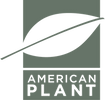Height: 14 inches
Spread: 12 inches
Sunlight:
![]()
![]()
Hardiness Zone: 2a
Other Names: Flowering Onion
Description:
Green leaves and pretty lavender flowers make an ideal addition to any garden, container or border; leaves have a mild onion taste that go well with potatoes, stews and salads; edible flowers with slightly more intense flavor; leaves can be dried
Edible Qualities
Staro Chives is a perennial vegetable plant that is typically grown for its edible qualities. The entire above-ground parts of the plant are edible, and can be harvested at any time in the season. The edible parts have a mild taste.
The plant is most often used in the following ways:
- Fresh Eating
- Eating When Cooked/Prepared
- Cooking
- Drying
- Seasoning
Planting & Growing
Staro Chives will grow to be about 14 inches tall at maturity, with a spread of 12 inches. It grows at a fast rate, and under ideal conditions can be expected to live for approximately 5 years. As an herbaceous perennial, this plant will usually die back to the crown each winter, and will regrow from the base each spring. Be careful not to disturb the crown in late winter when it may not be readily seen!
This plant is typically grown in a designated vegetable garden. It does best in full sun to partial shade. It does best in average to evenly moist conditions, but will not tolerate standing water. It is not particular as to soil type or pH. It is highly tolerant of urban pollution and will even thrive in inner city environments. This is a selected variety of a species not originally from North America. It can be propagated by division; however, as a cultivated variety, be aware that it may be subject to certain restrictions or prohibitions on propagation.
Staro Chives is a good choice for the vegetable garden, but it is also well-suited for use in outdoor pots and containers. It is often used as a 'filler' in the 'spiller-thriller-filler' container combination, providing a mass of flowers against which the larger thriller plants stand out. Note that when growing plants in outdoor containers and baskets, they may require more frequent waterings than they would in the yard or garden.

